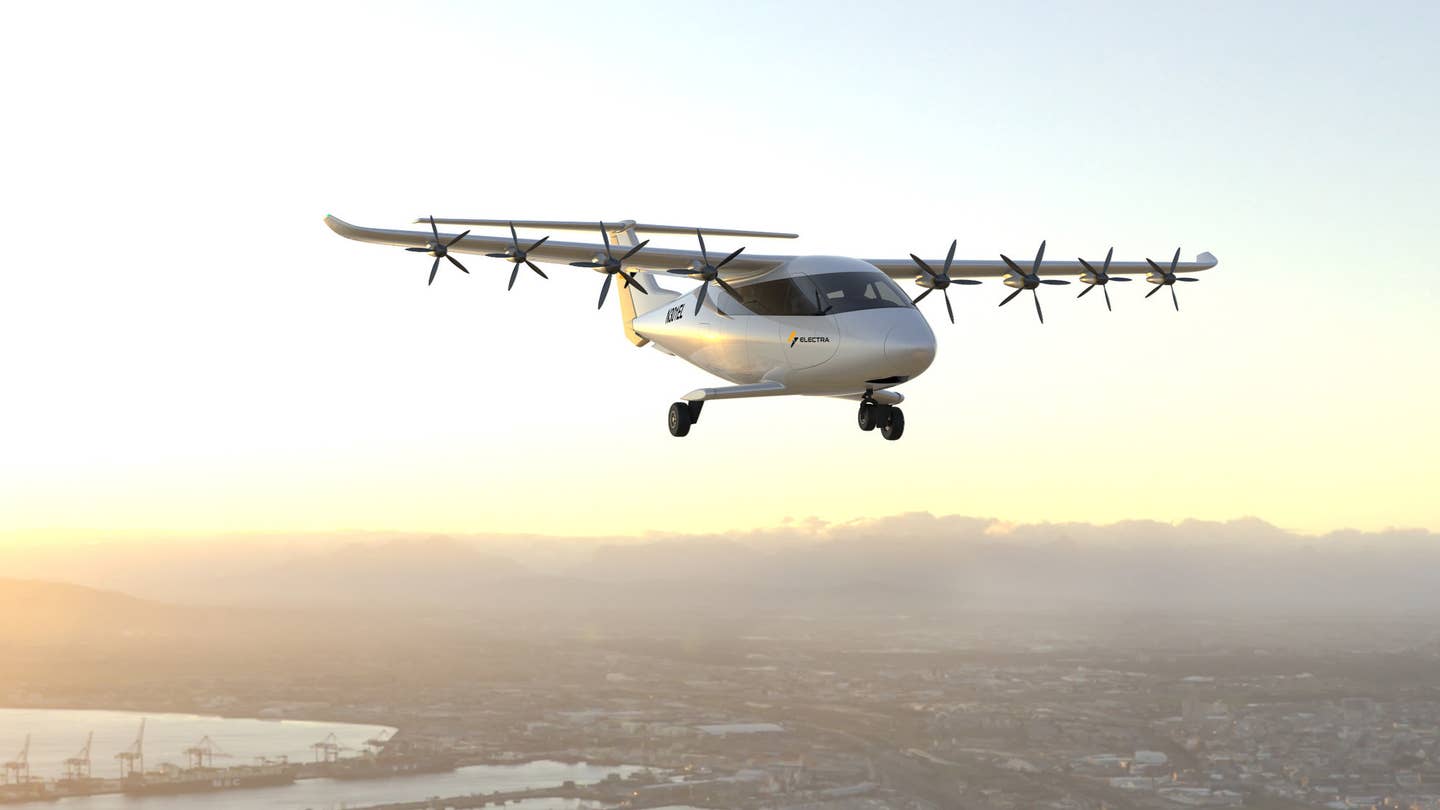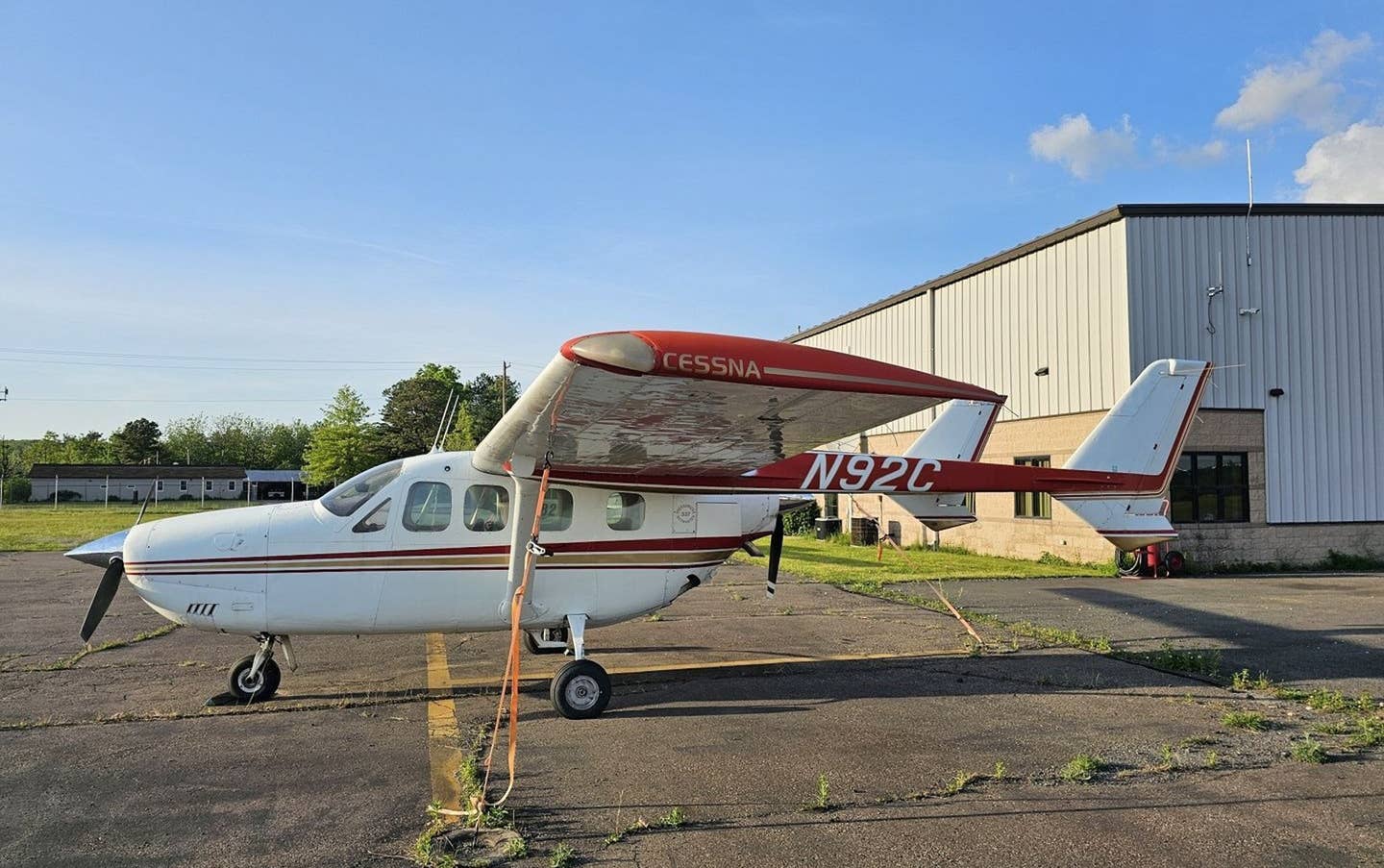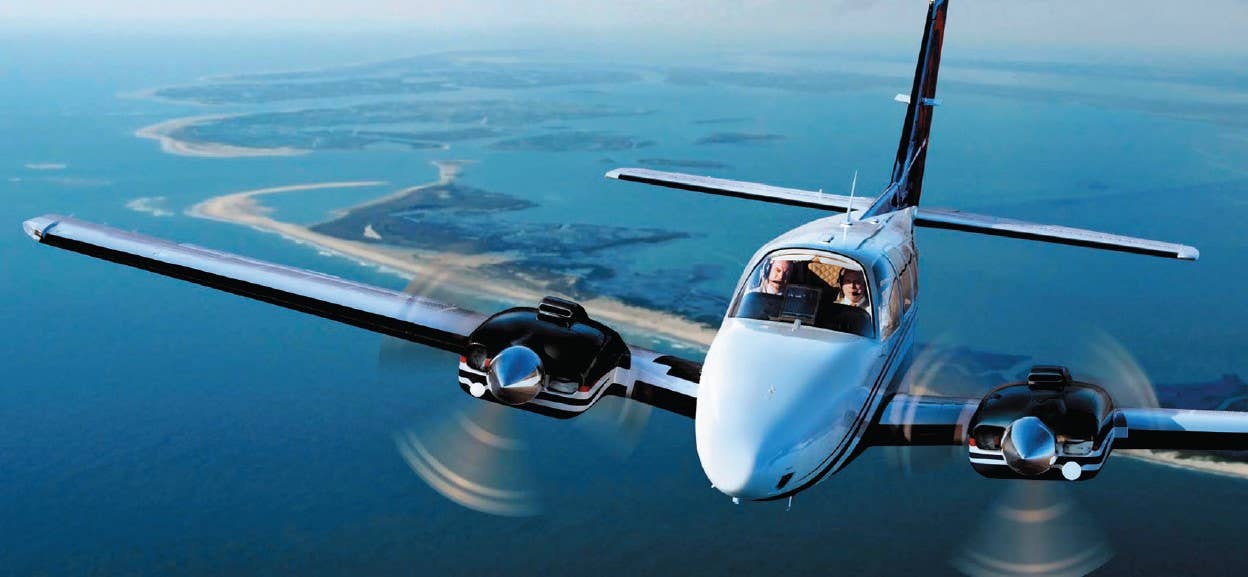
The company’s first commercial product is designed to carry up to seven passengers and a pilot as far as 500 miles. Electra Aero
Aerospace company Electra Aero has begun working with the FAA Center for Emerging Concepts and Innovation (CECI) and the Atlanta Aircraft Certification Office (ACO) to define the certification path for its electric short-takeoff-and-landing (eSTOL) aircraft.
The company has hired industry veteran Randy Griffith as its director of certification. Griffith led the certification of the Eclipse Jet, HondaJet HA420, Mooney M10, Aerion SST, and Zunum ZA10.
“Having taken several aircraft from concept through certification, he knows what it really takes to get the job done and we are excited to have him on our team,” Electra CEO John Langford said of Griffith.
About the Aircraft
Electra expects FAA approval in 2026 under Level 3 multiengine type certification, low-speed (max operating speed less than 250 kts) airplane, under 14 CFR.
The aircraft is designed to carry up to seven passengers and a pilot as far as 500 miles. It will serve:
- Urban and regional air mobility markets
- Sustainability-focused airline operations
- “Middle mile” cargo logistics
- Air ambulance services
All aircraft developments have unique design features or approaches that require special considerations, including:
- Special conditions
- Equivalencies
- Exemptions
- Unique means of compliance.
The company says the aircraft configuration and technologies minimize these special considerations.
Electra has been accepted into the FAA Center for Emerging Concepts and Innovations (CECI) early engagement program to work together with CECI and the aircraft certification office to evaluate these special considerations, define a specific certification plan and develop key documents like the compliance checklist.
“The certification of any aircraft (eVTOL, eSTOL, or CTOL) must be treated with great respect to exceed expectations of the public’s trust in the aircraft OEM and the regulator,” JP Stewart, Electra’s program manager said in a statement.
“The key to a cost- and time-efficient certification is the early engagement of stakeholders to identify and mitigate risks while changes to improve safety can be efficiently made. We’ve started this engagement early in the design and look forward to working with the FAA and other stakeholders to develop the safest aircraft in this class.”
Demonstrator Planned
In 2022, Electra plans to begin flight testing a full-scale hybrid eSTOL tech demonstrator. It will carry two people, take off and land in distances under 150 feet, and use a 150-kW hybrid-electric turbogenerator to power eight electric motors and charge a custom battery system during flight.
This will be used to provide data and operational experience in order to support the certification process and reduce risk in further certification efforts.

Subscribe to Our Newsletter
Get the latest FLYING stories delivered directly to your inbox






